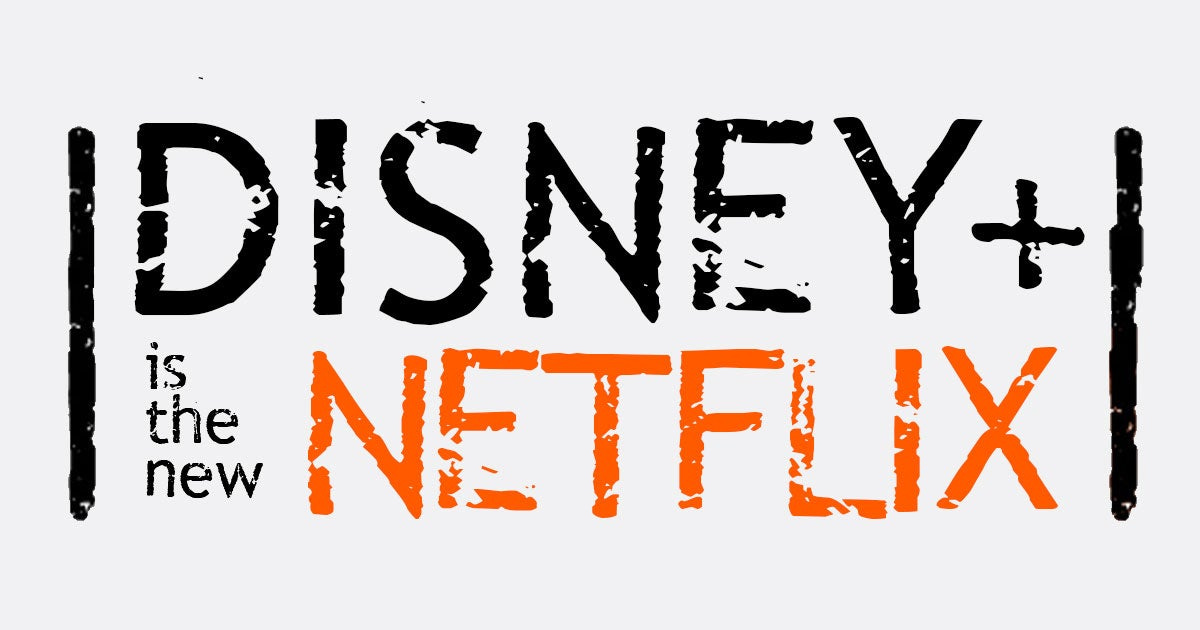Some Thoughts on Streaming
It's what everyone's into right now.

Of the now five major Hollywood studios (thanks, Disney/Fox merger), four will soon be involved at a corporate level in serious streaming services.
Let’s circle back to how we got here. Netflix, then an American DVD rental service, announces that it’s offering instant streaming video in 2007. Other streaming services follow along, but Netflix is king here. These companies pick up a lot of acquired films and TV series for relatively cheap because lol who wants to watch something on a computer!? Well it turned out a lot of people did, once the definition of a “computer” got blurred so thoroughly to mean essentially any screen. The business is growing fast enough that Netflix spends 2011 launching into new markets across the Americas and 2012 sees them expand into Europe. By 2016 the service is available in almost every country in the world. Amazon explodes at a similar rate, albeit with a smaller audience. There are lord knows how many region-specific services in the market by this point. Everyone who owns a lot of content seemed to have the sudden realisation of “wait, why are they making all this money from our shit?” and are looking to build their own services accordingly.
Disney have just launched their Disney+ service in several countries, with the promise of more next spring and world domination within two years. There has been a lot of hype around this, with the dreaded phrase “Netflix killer” bandied around. Which feels vaguely ridiculous to me. There was the big Twitter thread of all the titles available on the service, and everyone seemed impressed by the volume, but we’re talking 90% forgotten family movies and kids’ TV here. Which is great for families with children. They’ve got that demographic down. But let’s say you don’t have kids. What’s on Disney+ that might interest you, assuming you don’t want to watch hours of kid-focused entertainment?
The Simpsons, which is obviously wonderful, aspect ratio questions aside.
16 of the 23 movies from the Marvel Cinematic Universe. They’re missing some big hitters like Black Panther, Avengers: Infinity War and both Tom Holland Spider-Man entries, but this is still a chunk of hits. I might not be a fan of this franchise, but clearly plenty of people are.
All of the Star Wars films, which I may havewrittena fewwordsabout.
The Mandalorian, the first ever live action Star Wars TV series.
A lot of National Geographic programming apparently?
That’s basically it!
They’re betting the farm on The Mandalorian right now, and I can’t really see why. It feels like an entirely inessential brand extension compared from the first episode. Even if The Rise of Skywalker is terrible, it will be a crucial piece of Star Wars. The Mandalorian just exists.
Otherwise, this is just a service for families, which is fine. There’s a market for that. It’s not going to threaten Netflix in any real way. But this isn’t the plan. In the United States, Disney is offering a package deal with Disney+ included alongside Hulu and ESPN+. You can bet that the company will package the new service with existing offerings from others around the world. Here in the UK, I’d be surprised if we don’t see it as part of a Sky subscription eventually.
That seems to be central to Sky’s strategy in Europe. Having been bought by Comcast last year, it feels likely that they’ll lean heavily on their key asset of distribution. Back in the old days (when it was a UK only satellite TV provider), the Premier League was their crown jewel getting people in the door, but the current market research is telling them live sport is a declining priority for households when considering TV subscriptions. They can moan about piracy and shut down r/soccerstreams all they want, but that’s not going to bring people increasingly accustomed to watching football for free illegally back. What people are apparently willing to subscribe for is original drama series, and so Sky has a three pronged attack. One, invest in their own programming (of which only Chernobyl feels like it really took off). Two, buy the local rights to high profile American series, which looks sorted by renewing their deal with HBO (and expanding it to include much of HBO Max’s original series). Everywhere you went earlier this year, it felt like you saw marketing from Sky Atlantic calling itself the “Home of Thrones”. The third is to add other streaming services as part of their subscription packages. The most expensive options now include Netflix, as their adverts with Idris Elba are very keen to point out. I hope he’s getting very wealthy from all of this.
And that’s it, really. No one is going to “win” the streaming war. Netflix will remain the market leader for the foreseeable future, but probably in less of a dominant position than right now. There’s a stupid phrase that tech startup silicon valley types love about selling shovels in a gold rush that might be applicable here. The real “war” could be to sell you the subscription that gets you all the subscriptions. Sky is in a great spot to do that here, but it’s not a sure thing. The shows already exist by the barrel, whoever gets them to you will be the real kingmakers.

